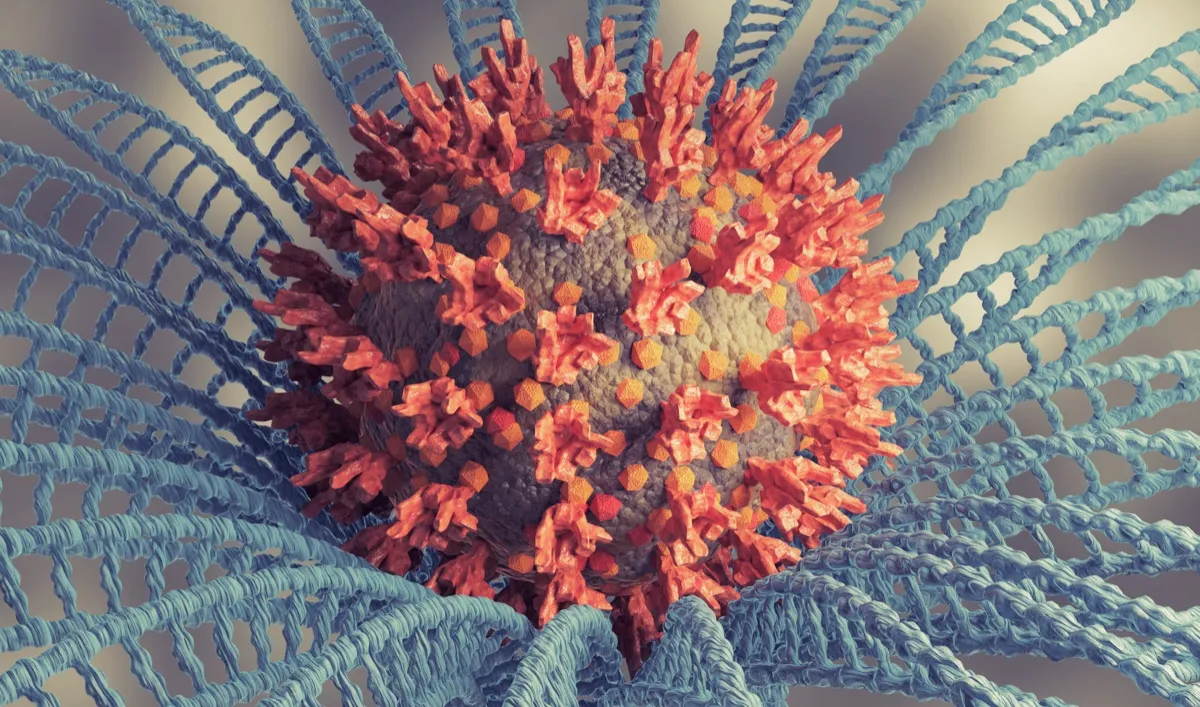On 26 November 2021 the World Health Organization named the Omicron variant as the latest Variant of Concern, joining the ranks of Alpha, Beta, Gamma and Delta variants. The previous emergence of most of these variants has changed the trajectory of the pandemic in many countries, as these variants have been more transmissible and/or vaccine-evading. However, at present we are still learning about the new Omicron variant, and it is too early to know what sort of impact it will have on virus transmission, vaccine evasion or disease.
The limited information that we do have on Omicron comes primarily from South Africa where the variant was first identified on 24 November from samples collected on 9 November in the province of Gauteng. It has been hypothesised that the emergence of Omicron has fuelled the dramatic rise in cases in Gauteng, as Omicron became the dominant variant in the province.
However, at this point it is not clear if changes in virus properties, such as transmissibility or vaccine evasion, caused the rise in cases or if the new variant simply emerged in the middle of robust community transmission, a phenomenon called the founder effect.
Read more coronavirus news:
- Molnupiravir: What is the COVID-19 pill and how does it work?
- Revolutionary cancer vaccine trials inspired by COVID jab begin
We know that the virus rapidly spread around the world and was present in Europe as early as 19 November. However, it is possible the variant was present even earlier.
In the UK there are currently 42 cases of Omicron, mostly in recent travellers but some local transmission has occurred and cases will likely significantly increase in the coming days to weeks.
The big question is if the arrival of Omicron will fuel an exponential rise in cases, similar to that seen in South Africa. In order for that to occur, the variant would need to have either increased transmissibility or an increased ability to evade vaccine-generated protective immunity. At present we do not have a definitive answer as to how Omicron compares to Delta or the previous variants and it will likely take several weeks before we know for sure.
After the Delta variant emerged as a Variant of Concern it took 4-6 weeks before we knew that the virus did in fact show enhanced transmissibility and we are still learning how the variant can transmit and cause breakthrough infections in the vaccinated. However, there are some reasons to suspect that Omicron will be more transmissible and immune evading than the Delta variant.

Omicron has more than twice the mutations seen in previous variants, with the majority of these occurring in the spike protein where they may increase the ability of the virus to bind to human cells and initiate an infection. Some of these mutations have been seen in previous variants and are known to increase transmissibility and facilitate immune evasion.
However, Omicron has many mutations that we have never seen before and it is unclear how these will change the behaviour of the virus or if they have contributed to the exponential rise in cases in South Africa. Recent research from South Africa that has not yet been confirmed or peer-reviewed suggests that Omicron may be more immune-evading then Delta with increased risks of reinfection and breakthrough infections.
Read more about COVID-19:
- Here’s why you can’t directly compare coronavirus vaccines
- AI tool may help develop universal vaccines capable of combatting virus variants before they emerge
It is highly unlikely that Omicron will completely evade protective immunity. It is more likely is that the variant will cause a further incremental decrease in vaccine efficacy, though it is possible this decrease could be somewhat offset with the rollout of vaccine boosters.
At this point it is too early to know if infections with the Omicron variant will cause similar symptoms to previous variants, with similar risks of severe disease, including long COVID. There has been a single report out of South Africa suggesting the variant may produce more mild symptoms; however, this has not been confirmed and may reflect the age and health of the local population more than a change in COVID-19 disease. As with the previous variants, it will likely be several weeks until we know for certain.
As we wait for increased understanding of the Omicron variant, it is important to remember that our existing preventative measures are still highly effective, even for a more transmissible and immune evading variant. Current data collected by the Global Fund suggests that existing testing methods, including most PCR and rapid antigen tests will still detect Omicron. Face masks, social distancing, indoor ventilation, testing/isolation and vaccination will all help reduce the risks of Omicron transmission.
Given the likelihood of increased transmission and immune evasion and the current high rate of virus transmission in many countries, it is critical that we take action to reduce virus transmission now.

